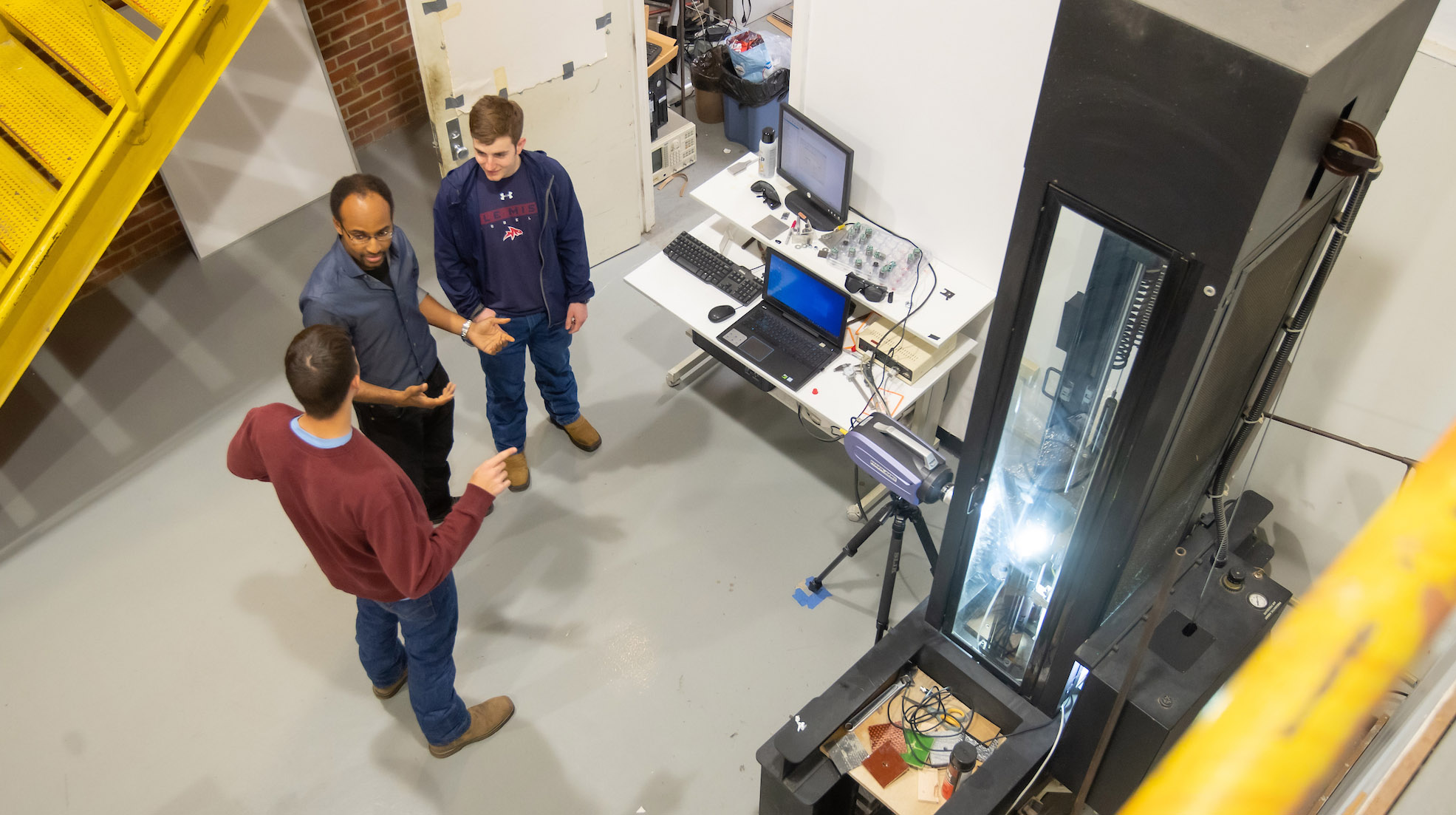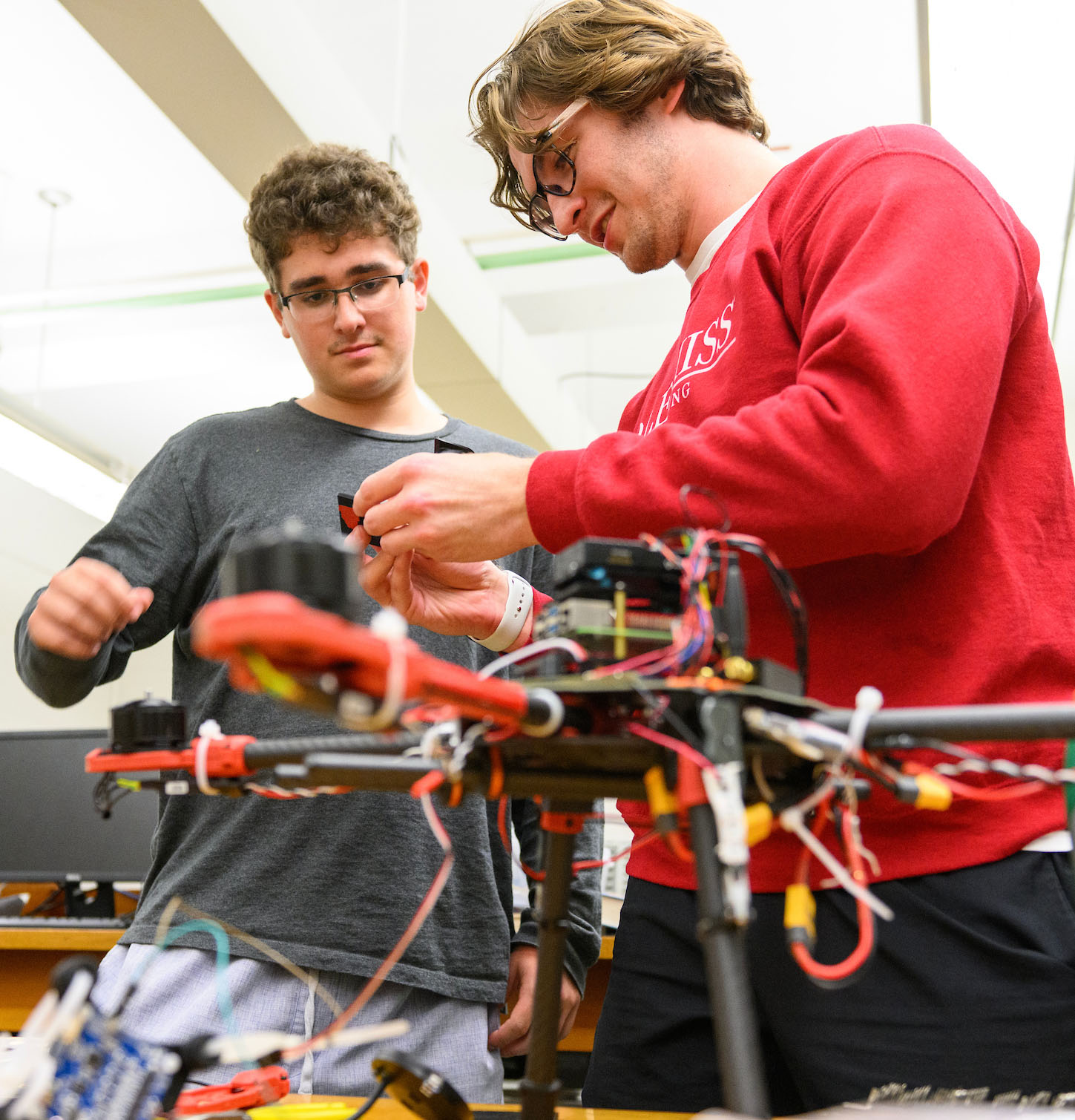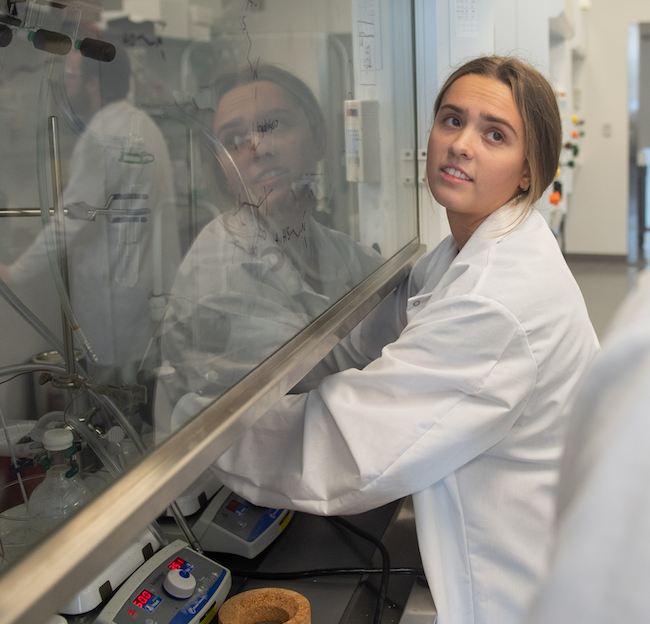General Engineering, B.S.
Learn how to apply science and math to design, construct, operate and maintain solutions to technical problems

“General engineering gives me more class options and will stand out when applying to med school.”
Leigh Hardin
General engineering student from Jackson, MS
About the Bachelor of Science in General Engineering
A general engineering background provides you with an understanding of the core math, scientific and technical principles needed for engineering. You’ll learn about problem-solving, as well as gain teamwork, leadership and communications skills.
With a bachelor degree in engineering from Ole Miss, you’ll be equipped for many engineering – and non-engineering – career paths. This could be as a project engineer, medical doctor, lawyer, military, business person and many other opportunities.
The perks of a general engineering degree
Broader horizon – you get the core engineering science principles plus the flexibility to widen your course selection outside of engineering.
Tailored program – you can choose an emphasis in business, manufacturing, pre-med, and ROTC studies – or one designed around your personal goals.
Exposure to different disciplines – you can take courses from multiple engineering departments to explore potential career paths.
On this Page…
Program Information
Degree
B.S. in Engineering
Emphases
Business, Manufacturing, Pre-med, ROTC studies
Required Credit Hours
127
Program Type
Major
Program Location
School
Duration
4 years
What to expect
As a student entering the general engineering program, you’ll be immersed in a blend of mathematics and sciences, along with electrical, mechanical, and civil engineering principles early on. These concepts coalesce to show you how to design, construct, operate, and maintain various structures and materials composing our world. Then, from an intensive core combining mechanics, materials, and thermodynamics, you’ll forge your own path ahead with a related specialization area or design your own degree program based around your personal and career goals.
General engineering composes a firm foundation for all other disciplines. In considering your studies here and your career, this broad-reaching area gets you envisioning the full process behind designing, developing, building, testing, and maintaining something from a software program to a physical structure. This vast and interlocking understanding benefits individuals seeking a position in product, process, systems, manufacturing, or development engineering or a role where you’ll be expected to guide projects from concept to completion.
General engineering further reflects the School of Engineering’s mission. Since our start in 1900, we’ve aimed to create well-rounded professionals ready to direct projects, develop advanced ideas, transform thought, and drive advancements in the field.
Emphases Areas
- Standard track
- Aerospace
- Business administration
- Entrepreneurship
- Global security studies
- Intelligence and security studies
- Manufacturing
- Pre-medicine
Beyond the classroom

Co-ops and internships
Work for a semester or the summer in a company or lab to see what engineers do.

Research
Help our professors in their research efforts –from advanced manufacturing to complex computing, from health technology to sustainability.

Student organizations
Take part in an engineering club and learn more about your field in one of our professional societies.
Chart Your Path to Engineering and Beyond
growth in engineering careers over the next 5 years.
For individuals with a general engineering background, the opportunities are endless
- Project Engineer
- Military Officer
- Project Manager
- Product Engineer
- Process Engineer
- Systems engineer
- Manufacturing Engineer
- Development Engineer
Next Steps
Explore Affordability
We have a variety of scholarships and financial aid options to help make college more affordable for you and your family.
Apply to the University of Mississippi
Are you ready to take the next step toward building your legacy?
